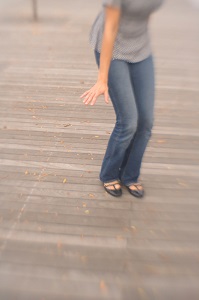Chorea
 Chorea causes involuntary movement. It is part of a group of disorders called dyskinesias, which result in a variety of abnormal and involuntary movements. Chorea typically has an underlying neurological cause.
Chorea causes involuntary movement. It is part of a group of disorders called dyskinesias, which result in a variety of abnormal and involuntary movements. Chorea typically has an underlying neurological cause.
Symptoms of Chorea
The primary feature of chorea is involuntary movement. Unlike some other dyskinesias, chorea causes movements to flow from one muscle to the next. Although the movements typically are clearly involuntary, they appear somewhat directed. Sometimes the movements can look like the person is dancing.
Causes of Chorea
Several illnesses can cause chorea. These include:
- Huntington’s disease: This genetic condition causes a variety of symptoms, and chorea is commonly associated with Huntington’s.
- Parkinson’s disease
- Liver problems which cause toxins in the blood: Wilson’s disease in particular, which causes dangerously high copper levels, can cause chorea. The illness is extremely rare.
- Metabolic conditions and endocrine system disorders may lead to chorea in some people.
Very rarely, chorea gravidum develops in people as a result of pregnancy. A combination of pregnancy hormones, previous illnesses, and liver problems can increase a person’s likelihood of developing chorea gravidum.
In addition, some medications and drugs may cause chorea. In particular, antipsychotics, withdrawal from certain drugs, and some illegal drugs may cause chorea.
Treatment for Chorea
Treatment includes ruling out other movement disorders, which can be caused by mental health conditions and other medical conditions. When chorea is suspected, a doctor will typically administer blood tests to determine if there are liver or endocrine system problems. When chorea is caused by diseases such as Huntington’s or Parkinson’s, it may not be reversible. However, some medications can mitigate the effects of the illness. When chorea occurs during pregnancy, doctors may induce labor or advise watchful waiting.
Reference:
- Tardive dyskinesia introduction and overview. (n.d.). Tardive Dyskinesia Center. Retrieved from http://www.tardivedyskinesia.com/
Last Updated: 08-4-2015
- 1 comment
- Leave a Comment
Steve Zarren
February 8th, 2013 at 4:46 PMHi,
I am a former sufferer of dystonia and want to offer you my support if you are still struggling with this awful disorder or another movement type of neurological disorder.I have put many years of my life into helping dystonia sufferers find relief, and through my efforts was able to get a medical study done at Johns Hopkins Medical Center with the program that helped me.
It is my pleasure and privilege to work full time in helping dystonia sufferers find relief and get educated
on the health fundamentals that I have discovered that can make a huge difference on improving one’s health.I have been effective in helping dozens of dystonia sufferers find relief and have worked with those in
22 countries and 48 states. Please feel free to call me if you would like to learn more about my work
and how I have been helping others.There is nothing more enjoyable than seeing those I work with find the relief and hope as I received many years ago.
For more information, please visit my website at dystoniadisease.net.
Thank you.
Steve Zarren
Leave a Comment
By commenting you acknowledge acceptance of GoodTherapy.org's Terms and Conditions of Use.
